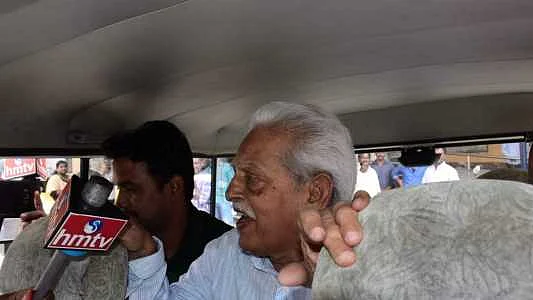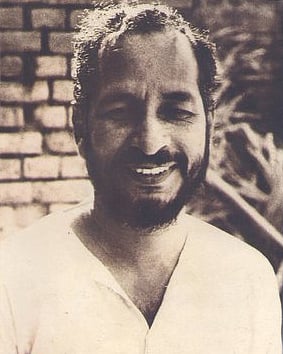Memories of a half-Maoist and a patriot
Full Maoists who willingly or unwillingly take up arms, end up paying with their lives. But half-Maoists usually patriots, often more patriotic than their critics, and serve a useful role in society

Before Pune Police sends another team at some cost to the public, let me hasten to declare that the urban Maoist I have in mind, died of a viral infection in the backwaters of Bihar, where he had spent a lifetime working to uphold people’s rights.
Besides being a ‘half-Maoist’, he was also a ‘half-doctor’. Having spent four years studying medicine in Agra, he chose against appearing for the MBBS exam and plunged headlong into the JP movement and never looked back.
He dabbled with Maoists for some time, heading the Mazdoor Kisan Sangharsh Samiti (MKSS) in Bihar, dubbed a front organisation of the Maoists by the police. Arguably, police and the private armies of upper caste landlords pushed MKSS to the alliance. Each needed the umbrella provided by the other.

The ‘half-Maoists’ were patriots, performed the useful role of communicating the angst at the grassroots and as a bridge between the revolutionaries and the civil society
But this urban Naxal also had differences with Maoists over the use of violence. Violence, he would explain, was counterproductive and give the example of Maoist armed squads comprising 10 or 12 armed men. These armed squads would often visit villages and hold a people’s court and a public trial of a local landlord, an informer or just a serial rapist or a goon. The verdict of the people would often be death. The armed squad would execute the accused and melt into the darkness. By next morning, they would have moved a hundred kilometers away and dispersed into several districts.
Most of the men, part of the jury, would also disappear the same night, Vinayan would explain, leaving the women to bear the brunt. Police would arrive in the morning, ransack the village, assault the women and return after collecting the names of the absconding men.
Then all 50 or 60 men would be charged with murder and warrants of arrest issued against them. Guilty at best of bravado, the men would migrate to the metros while the police would obtain distress warrants and take over their meagre possessions. Some would get arrested and spend time in jail for months before the women were able to sell their land, jewellery and collect enough money to secure bails for their men.
The families would obviously be ruined. For every life taken by the armed squads, Vinayan said, fifty families would pay the price. This was not justice, he argued and tried his best to stop the kangaroo courts.
Not surprisingly, he fell foul of both the Maoists and the Government. A reward was declared on his head after the infamous police firing at Arwal that revived memories of Jalianwalabagh in Amritsar. As many as 19 dalits, men, women and teenagers among people Vinayan was addressing, got killed. He himself was escorted to safety by people, some of whom lost their dear ones. And the Government promptly declared a reward on his head.
This was the time when Shyamal Datta, who retired as Director, Intelligence Bureau, was posted as the Joint Director of IB at Patna. Over a casual cup of tea in his office one day, he told me that I might like to warn my friend to be more careful. Which friend of mine was he referring to, I asked and with a knowing smile the JD named Vinayan. Police, he said, knew that Vinayan visited my house and chances of arresting him there were higher.
There was no way to send word to the man. But when he appeared next, I hurriedly conveyed what the IB chief had shared. He was unfazed and said with a smile, “Please ask the IB chief to get 25 blankets for my men—they are shivering in the cold and the IB would have enough secret funds to pay for the blankets.”
Vinayan never carried a firearm and would not use any disguise. I remonstrated with him and asked why he could not put on a false moustache, a hat or at least a sunglass. He laughed and declared that the day he would use a disguise, he would get arrested!
I communicated his request to the JD and Datta, an NDA appointee as Governor of Nagaland after his retirement, personally took the trouble of arranging 25 blankets for Vinayan’s men.
The hard-core Maoists of course did not show a softer side and were not reformers but revolutionaries. But the ‘half-Maoists’ were patriots, performed the useful role of communicating the angst at the grassroots and as a bridge between the revolutionaries and the civil society.
By targeting writers, poets, researchers, journalists, activists and lawyers, the state is not just being unfair but is doing a great disservice to itself. Drying up channels of communication and insights from the ground is not statecraft but foolishness.
Follow us on: Facebook, Twitter, Google News, Instagram
Join our official telegram channel (@nationalherald) and stay updated with the latest headlines